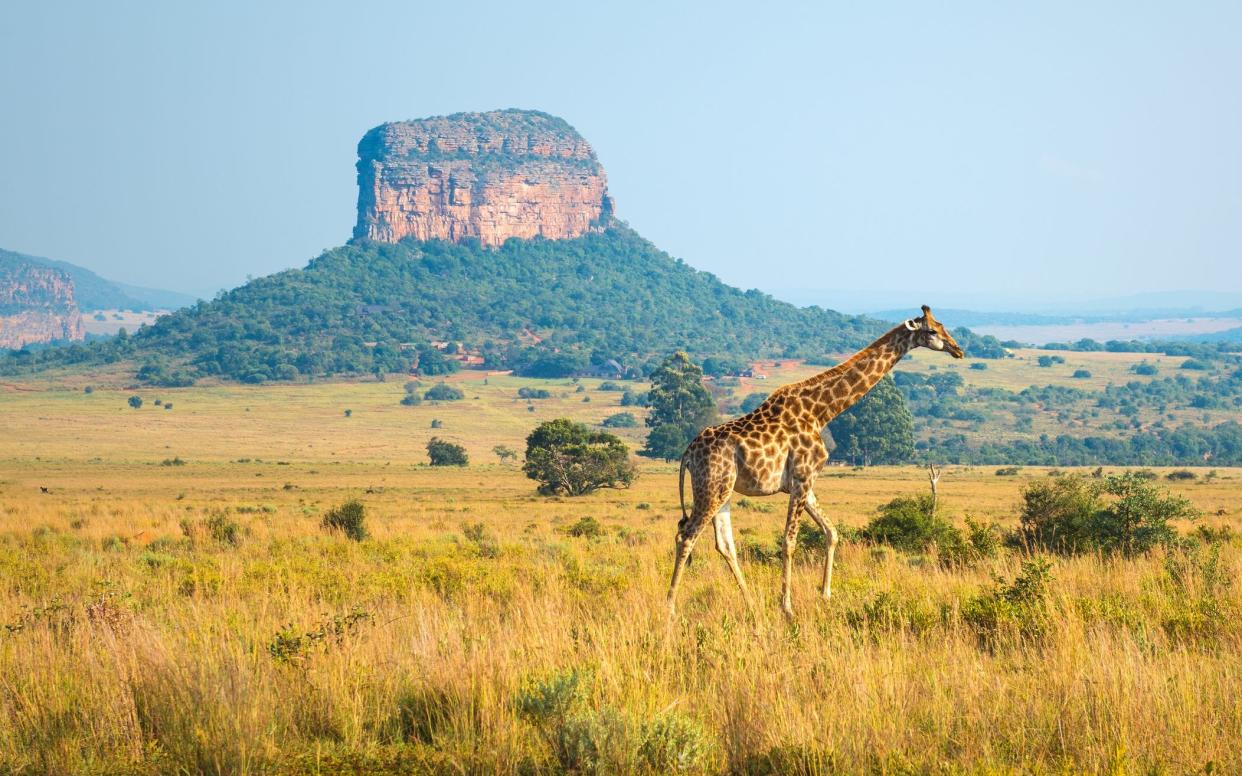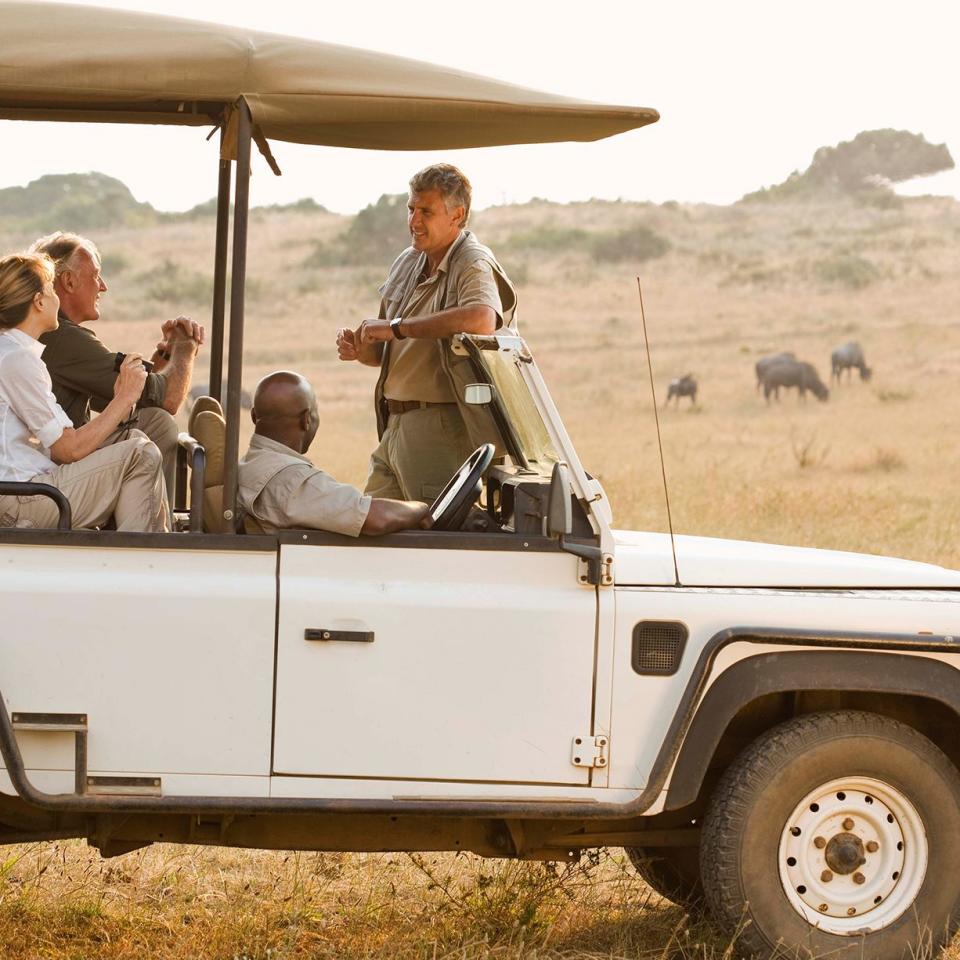'African communities are on their knees because this government doesn't care about travel'


Every British tour operator has suffered this year, with global travel restrictions putting much of the world out of reach. Even now, nine months on from the start of the Covid pandemic, a quarter of countries – 59 in total – still haven’t reopened their borders. But for long-haul specialists like Expert Africa, founded by Chris McIntyre 26 years ago, the situation has been particularly dire.
The Government’s travel corridor list dictates where Britons can go without needing to quarantine on their return home, and, until the addition of Namibia and Rwanda last month, the whole of Africa has been snubbed. Furthermore, thanks to the Foreign Office’s blanket non-essential travel advisory, tour operators are hindered from even offering trips to non-corridor countries.
“It’s been a challenging year to say the least,” McIntyre tells Telegraph Travel. “Annually, we usually take around 1,200 guests on high-end safaris, with around half of our clients coming from the UK, a quarter from the US, and the rest from a range of other countries. Since March that figure has fallen by around 80%.”
So far in 2020, 27 Atol-protected holiday businesses have gone under – with STA Travel and Shearings the most high-profile losses – but McIntyre believes many more are on the brink. “Over the years we’ve tried to put money away for a rainy day, and we’re currently surviving on that,” he says. “I think other prudent companies have done likewise, which might be why we’ve so far seen relatively few failures. But if it doesn’t stop raining... if people can’t travel properly by next summer, there won’t be many travel companies left.”
McIntyre recognises that the Government has faced tough decisions during the Covid crisis, but is scathing about its lack of support for an industry that employs hundreds of thousands of Britons.
“I just don’t think the Government cares about travel – they have written it off from the start,” he says. “They think it’s simply foreign currency going out the door, and would rather people go on holiday in Cornwall... never mind the companies that will go bust and the jobs that will be lost.”
McIntyre is particularly damning about the absence of any engagement with his industry, pointing out that not a single business leader was asked to join the Global Travel Taskforce, established in October with the goal of revitalising overseas holidays.
He adds: “There are other basic ways they could have helped. For example, they’ve hammered tour operators when it comes to offering refunds instead of credit notes, but airlines have not been put under the same pressure. So you’ve got tour operators being ordered to refund customers when much of their money is sitting in airline bank accounts, not being handed back, so they simply can’t.”

Stinging criticism is also reserved for the Foreign Office, which continues to advise against non-essential travel to most of the world, including scores of countries with far lower Covid case rates than the UK. This is despite the fact that many travellers are now being tested before they leave the country.
He says: “The Foreign Office advice is ridiculous. When they warn against travel to certain destinations it ruins our insurance policy and prevents us from offering trips. In theory we can still send people, but we need them to sign away some of their rights, which is understandably not something most people are willing to do.”
Since Telegraph Travel launched its Unlock Long Haul campaign on November 5, the Government has unveiled 26 new travel corridors. Most – such as Vanuatu, Timor-Leste, Mongolia and Kiribati – are of limited interest to British holidaymakers, while others – like Laos, Uruguay and Israel – remain closed to tourism.
But McIntyre points out that there are dozens of nations, especially in Africa, where Covid is scarce and the need for tourists acute.
“It’s long past the time that the UK should have added Zambia, Kenya, Botswana and South Africa to the corridor list, as all have infection rates which are a fraction of the UK’s,” he says.
“It’s complete nonsense to advise people against going to, say, Zambia, because of Covid, when the chances of catching it in the UK is hundreds of times higher.”
He adds: “Corridors with Kenya and South Africa would make a huge difference, as opening up Nairobi and Johannesburg [where most European airlines fly to] will open up the whole of sub-Saharan Africa.”

The impact that travel restrictions are having on these countries is massive, McIntyre says. “Many communities in Africa, particularly around the national parks, supply the safari guides, the waiting staff and the cleaning staff. Tourism supports builders who construct camps and farmers who supply food. So with the camps closed the whole economy gets hammered. There’s no such thing as furlough in Africa, but I speak to lots of lodge owners, who are trying to give their staff an income. Lots have charitable foundations, so some staff are getting, perhaps, 25% of their normal salary to survive, but they can’t carry on for long. The place is on its knees.”
It has been suggested that the absence of travel corridors with African countries is down to a lack of testing. While the UK is swabbing hundreds of thousands of people a day, most African countries are only checking those who have Covid symptoms. McIntyre believes this is unfair: “There’s a lot of things that kill people in Africa: TB, malaria, AIDS… when the Covid deaths rates are so low, are we really expecting them to use up their resources testing for coronavirus?”
With a vaccine within reach, there’s fresh optimism for the future of travel. McIntyre, however, remains cautious. “I think the Government is afraid to ease up on restricting travel. It’s illogical, but they are probably still worried about being accused of letting the virus in from abroad. Perhaps the vaccine will get travel back to normal, but there are still so many questions. Will testing still be required? What about vaccine passports? I find 2021 very difficult to call, and I’m still nervous. I don’t know whether we’ll have a travel industry next year or not.
“Hopefully when people have been vaccinated, when hospital admissions plummet, then the restraints will be loosened and people will be allowed to make their own decisions again. Travel always comes with an element of risk, but it should be your risk to take.”


